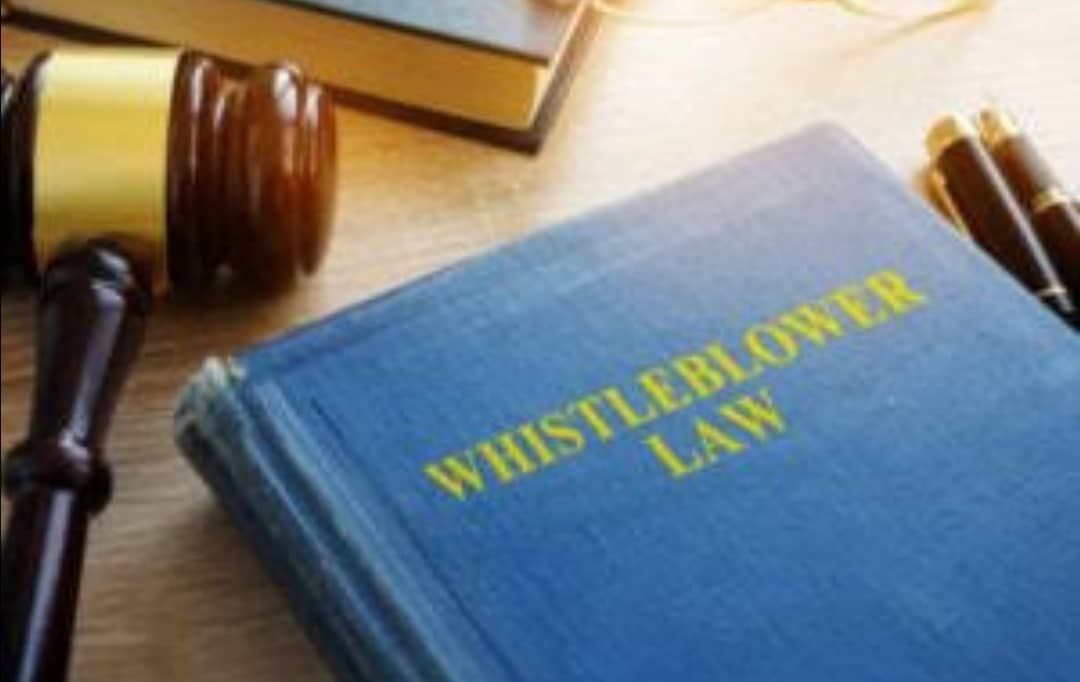Enact whistleblowing law, CSOs task executive, legislature
By Perpetua Onuegbu
Some Civil Society Organisations (CSOs) have called on the executive and the legislative arms of government to push for the enactment of a whistleblowing law, to strengthen the fight against corruption in the country.
The CSOs – African Centre for Media and Information Literacy (AFRICMIL) and Centre for Fiscal Transparency and Public Integrity (CeFTPI), made the call in Abuja on Tuesday at a one-day capacity development workshop on public interest disclosure and accountability.
The News Agency of Nigeria (NAN) reports that the workshop was organised in partnership with the Bureau of Public Service Reforms (BPSR), for Ministries Departments and Agencies (MDAs).
Dr Chido Onumah, Coordinator, AFRICMIL, said the call for a whistleblowing law had become expedient considering the increasing level of corruption in the society, especially in the public service.
“Our goal is to support the government to produce citizens who embrace whistleblowing as a permanent transformative culture and use it to expose corrupt practices and other illegalities that are harmful to public interest,” he said.
Onumah said that they were already working with different partners in the six geo-political zones of the country to ensure that the goal of enacting a whistleblowing law was achieved.
“We are now working with MDAs to get them up to speed with the whistleblowing policy of the Nigerian government that was introduced in December 2016.
“So much happened between when that policy was introduced and today; we don’t have a whistleblower law and a lot of whistleblowers face retaliation when they make public interest disclosures in their MDAs.
“So we are here to have a robust conversation with the MDAs and get them acquainted with what the policy is all about, and what it requires to push the campaign for a whistleblower legislation.
“If we have a law, civil servants who report irregularities and corruption in the public service will be protected, and this is a conversation on the future of whistleblowing in the country,” Onumah said.
According to Onumah, the biggest incentive to people speaking out (whistleblowing), is the law.
“We did a survey five years ago, to know why the zeal people have in speaking up dropped, after huge disclosures, when whistleblowing was introduced, we discovered that the more people reported, the more they faced retaliation in their offices.
“So, people felt that self interest was the most important thing; they won’t want to report wrongdoing and then get punished for that.
“I think that the way to go is to have a whistleblower law in the country, so that people are protected and confident to speak up, so that they don’t get sacked when they see something and say something.
“If you don’t provide security for whistleblowers, nobody will stick out their neck to report anything,” he added.
He regretted that out of about 500 MDAs in the country, only about 20 have whistleblowing policies.
Mr Abdul Mahmud, President, Public Interest Lawyers League (PILL), urged MDAs to set up a whistleblowing desk, for workers to make disclosures.
He called for stiffer punishments of anyone who retaliated against any worker who made disclosures against any corrupt individual.
“We have seen people who see things and publish them online, and they become victims of cyber-stalking.
“We are dealing with massive public thievery of our resources, and it is good that we reform the institutional framework of the state, but if we do not reform ourselves, there is little or no result that we can achieve,” Mahmud said.
Earlier, Mr Dasuki Arabi, the Director-General, BPSR, said that the call for a legislation for a whistleblowing law underscored their commitment to entrenching transparency, accountability and good governance within the public sector.
Arabi said that the workshop was convened pursuant to the Freedom of Information (FOI) Act 2011, a landmark legislation that empowered citizens, promoted openness in governance and ensured access to public information.
“BPSR has over the years played a pivotal role in promoting transparency and accountability within the public sector.
“However, we recognise that in spite of the progress made, challenges persists in the full realisation of the FOI Act.
“Public interest disclosure is a crucial element in the fight against corruption and maladministration. It empowers public servants and citizens alike to expose unethical practices and mismanagement without fear of reprisals.
“As such, fostering a safe and enabling environment for whistleblowers, backed by appropriate legal framework, is imperative,” Arabi said. (NAN)(www.nannews.ng)
Edited by Emmanuel Afonne
Published By

- Senior Editor
Has also recently published
 ForeignJune 30, 2025Nigeria, Saint Lucia to establish formal diplomatic relations
ForeignJune 30, 2025Nigeria, Saint Lucia to establish formal diplomatic relations ForeignJune 29, 2025Tinubu’s Saint Lucia visit ‘ll boost ties with Caribbean nations — Presidency
ForeignJune 29, 2025Tinubu’s Saint Lucia visit ‘ll boost ties with Caribbean nations — Presidency General NewsJune 29, 2025Akume remains SGF—- Presidency
General NewsJune 29, 2025Akume remains SGF—- Presidency General NewsJune 29, 2025Al-Habibiyyah advocates Waqf as solution to socio-economic challenges
General NewsJune 29, 2025Al-Habibiyyah advocates Waqf as solution to socio-economic challenges





